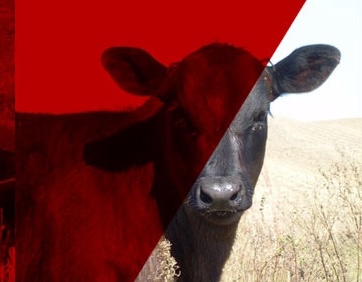Moldy hay. No matter how hard you tried, last summer you baled some hay a little too wet and now you have some mold. So how do you go about feeding this moldy hay safely?
Feeding moldy hay to livestock is a tough decision. Although all hay contains some mold, when mold becomes easily noticeable the decision becomes important.
Usually, mold makes hay less palatable, which can result in lower intake or even in animals refusing to eat the hay. Other problems from mold can occur because of mycotoxins produced by certain mold fungi. This is a big part of the decision problem since not all molds produce mycotoxins and the amount produced by those that do is unpredictable.
Direct negative effects of moldy hay are difficult to document. Horses may be more sensitive to mold than most common livestock. For instance, mold spores often contribute to respiratory and digestive problems like colic or heaves in horses. Cattle apparently are less affected by mold, but certain molds can cause mycotic abortions or aspergillosis. People, too, can be affected by mold spores. Mold can cause a condition called farmer’s lung, where the fungus actually grows in lung tissue. So try to avoid breathing in many of these spores.
The best course of action often is to minimize feeding moldy hay to more sensitive animals, like horses or pregnant cows. This may require a keen eye or sensitive nose when selecting hay to feed each day. Mixing moldy hay with other feedstuffs can dilute problems sometimes, but be careful that you don’t make your animals sick by tricking them into eating bad hay that they normally would refuse.
Moldy hay is a difficult problem to deal with. Common sense and good observation often are your best decision aids.
Interviews with the authors of BeefWatch newsletter articles become available throughout the month of publication and are accessible at https://go.unl.edu/podcast.

